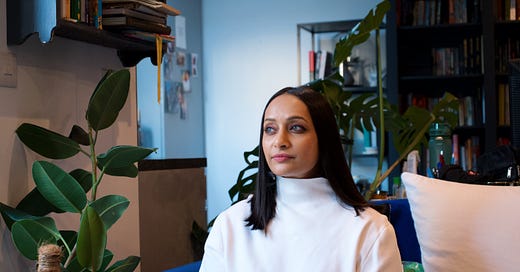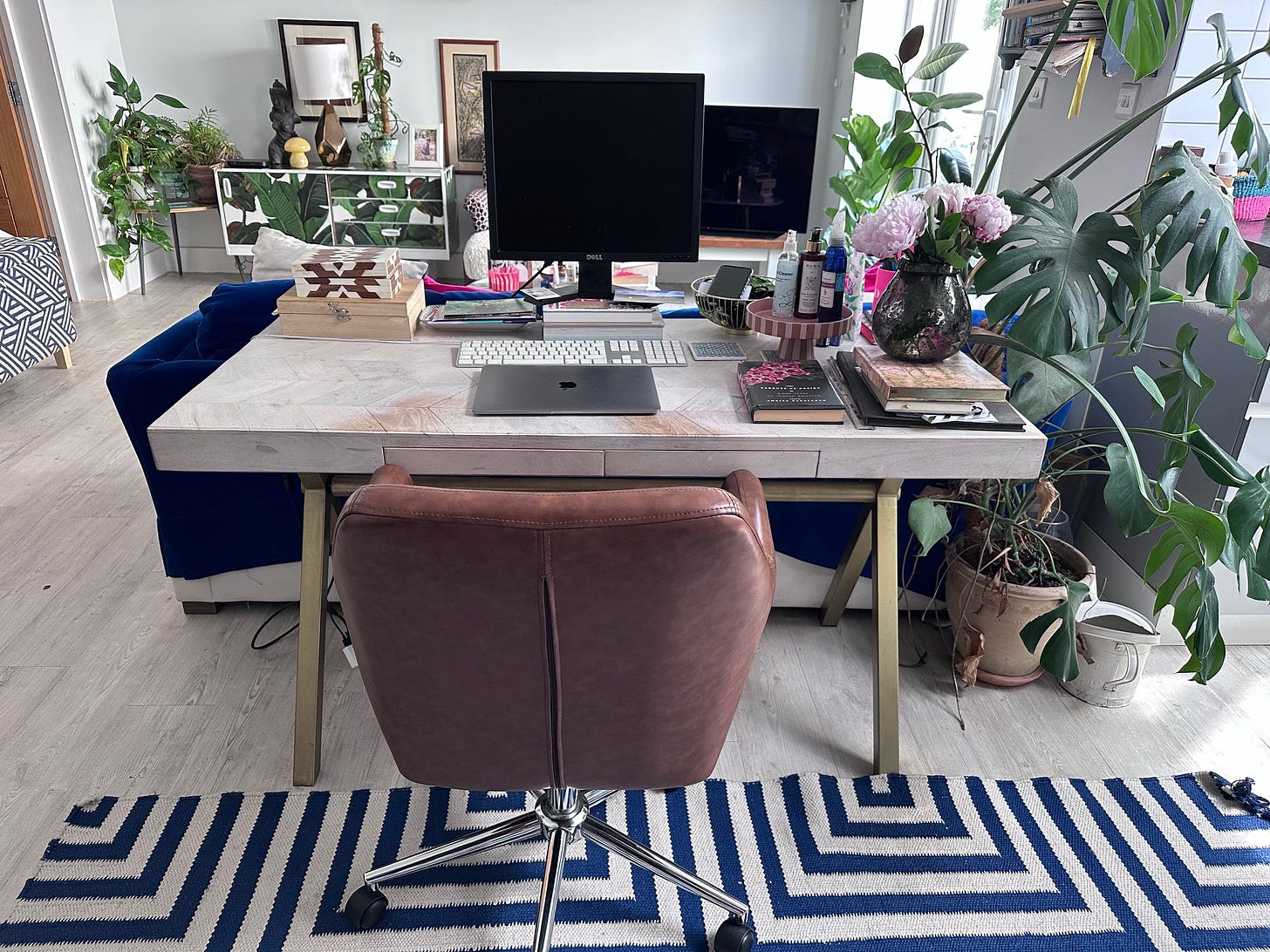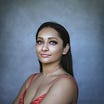The Writer: Poorna Bell, author and journalist
This new series of author interviews launches with Poorna Bell who started in journalism, writes across fiction and non-fiction and has a brilliant Substack called 'As I was saying'.
I first came across Poorna Bell some years ago at an event in east London. She was part of a panel talk, speaking candidly about the subject of her debut book - Chase the Rainbow - which retraces the life she shared with her late husband, Rob. I’ve followed her ever since and I wanted to ask Poorna more about her life, as a writer, as she publishes her latest novel, This is Fine (Penguin, 2025) about a child-free woman who steps in to help her wayward teenage niece.
Here’s our interview.
You’re the author of five books - across fiction and non-fiction - a journalist of 21 years and you write on Substack. Do you enjoy writing across genres, or is there one area you’d like to focus on more?
I enjoy writing across multiple genres, and each comes with its own challenges and enjoyment. Substack is the least challenging because it taps into my journalism, and that always feels the most effortless because a) I've been doing it a long time and b) there is a structure and shortness to it that is easy to manage.
When Substack feels hard, is when things start to worm in such as the number of people who like (or don't like) your posts, or when you are trying to grow paid subscribers. I've learned that this sits separately to the writing - it's deeply unenjoyable when you're trying to game what might be popular.
In terms of books - non-fiction is easier than fiction because you are working with facts and interviews, and even though it can be hard when writing from your own experience, you are still working with characters that already exist. Fiction is harder because it is literally crafting a world from thin air, and it is a deeply saturated market so you are competing with people in a way that can be tough on your faith in your ability to write.
Does it get easier/harder to get commissioned, as you progress with your writing career?
It gets infinitely easier because you build more of a name for yourself, and you get to choose what you want to write. I never dreamed it would happen but nowadays, the majority of journalism work I do is from editors approaching me, versus me pitching to them. And a large part of this is based on the thoughts I blurt out on social media.
What made you leave employment as UK Executive Editor and Global Lifestyle Head for HuffPost to become a freelance writer?
I was deeply grieving the loss of my husband Rob, and I couldn't bear working in a corporate environment anymore. The things people focus on and care about when they work in those kinds of places, resembled nothing that I cared about - it felt meaningless, and, I didn't want to manage people. I also felt my creativity was being stifled. I was managing other people's creative output but not creating myself, and I wanted to return to that. I also felt that working in any company that was male dominated and very white in terms of leadership would never fully back me and my career, and that I would actually be more successful outside of it. Spoiler - I was!
How many of your book pitches (if any) have landed on slush piles?
I had a number of terrible pitches in my 20s that went nowhere, but I can't remember how many, unfortunately. The number of journalism pitches that ended up failing is innumerable.
Where do you find ideas for your books, articles and Substack essays?
I talk to people, I consume social media and most importantly read the comments, I observe the conversations that aren't being had as much as I do the ones that are, I pay attention to emotions that come up when I read a story, and I think about what I want people to know.
Is there a particular time of the day that you write?
The morning is my best time. After 1pm, it's game over until 5pm when I get a second wind.
Where do you most like to write from?
I write from my desk that is in my living room and faces my small garden. If I am writing in the evening however, I like to write from bed.
Do you have a morning/night-time routine that helps with your writing?
I cherish and protect my night-time routine. I don't watch TV after 9pm, and I try and read before bed which always helps me get to sleep. I want as much sleep as possible, so I try and be in bed by 9.30pm, to be properly asleep by 11pm. Being rested is the best thing I've done for my headspace. That, and quitting alcohol.
How do your real-life experiences feed into your novels?
I'm not sure I think about it in that way actively. Everything I write about is based on things I care about, subjects I feel are important, or conversations that I think are missing. But I don't know that I mine my own life for my novels - it's usually based on other people's stories. Sometimes I might put a conversation in that I couldn't write about in my non-fiction work, but mostly, my fiction is fiction.
Do you feel successful, as a writer?
Yes and no. I'm aware that I have a profile, and that among some people, my work is known. But there are still goals of mine that are important, that I don't feel I've achieved yet, and am not sure if I ever will. To be honest, most of these goals are based on the validation of others, and perception - and I'd like to be a bigger person and say I don't need it, but I probably do.
Otherwise, I have written for pretty much every major UK publication that I would have killed to write for in my 20s and never thought possible, and I've published several books which I never thought possible, so in that regard I do feel successful. I don't know that I ever allow myself to properly appreciate and enjoy it, though.
How do you cope with failure?
By trying again. I don't have the luxury of not doing so. I'm aware that in many spaces I am a minority, and I am not going to sabotage my own success when there are other factors and influences working against me. I am not going to be my own worst enemy - I have to be my champion. And so there is no other option for me but to get back up, and try again. I think I get that from my mother.
Your three favourite authors?
Terry Pratchett, Toni Morrison, Meg Mason.
What’s next, for your writing?
I have a new novel coming out next year, and a new non-fiction, so watch this space! (If my brain doesn't melt by the end of it...)
Subscribe to Poorna’s Substack:










Amazing interview. I loved reading this!
Love what Poorna says about trying again and not having the luxury of not doing so. Being her own champion and not enemy.